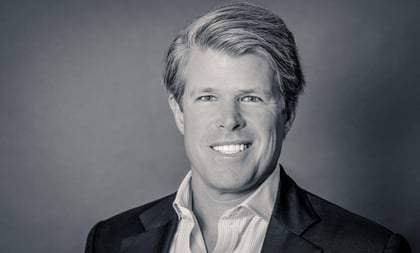What’s critical to grasp when serving millennial clients? They prefer texting to talking, deem phone calls and eye-to-eye meetings inefficient and would sooner watch videos than read all about it. Upshot? Traditional ways of communicating won’t cut it with this important new generation, set to inherit, along with Gen Xers, about $30 trillion in the next 30 years or so.
Hence, smart FAs need to start adapting to millennial habits and buying preferences, which are 180 degrees from the prior two generations. So says Gui Costin, founder and CEO of Dakota Holdings, a sales and marketing business for investment firms.
Costin, 52, is author of “Millennials Are Not Aliens … But They are 80 Million Americans Who are Changing How We Buy, Sell, Vacation, Invest, and Just About Everything Else” (ForbesBooks 2019).
In the interview, he elaborates on five key ways to build relationships with millennials, aka Generation Y:
- Communicate with them on their own terms.
- Be an advisor, not a dictator.
- Create content around your products.
- Use video to create rapport.
- Help them invest in solutions to meet their vision.
The first generation to grow up with the internet, millennials are habituated to getting quick access to information and products. That, in turn, has made efficiency and high-level service among their chief priorities.
Content is king to millennials, and the way they prefer to consume it is via video, according to Costin. Advisors should start creating it — and podcasts too — if they want to stay out in front, he recommends.
Though in the future, Gen Y will certainly seek guidance from FAs, they will also insist on involvement in investment decisions, Costin stresses. This is manifest with those millennials who already have substantial investable assets.
Dakota, founded in 2006, sells investments, such as mutual funds, to advisors through asset managers. The firm’s other enterprises are Stage Investor Network, a digital content platform where investment firms post content about their strategies, and Draft, designed for asset managers, which provides a database of investors.
ThinkAdvisor recently interviewed Costin, on the phone from his Bryn Mawr, Pennsylvania, office. Gen Y will become known as the Impact Generation, he forecasts, since these men and women want to invest in companies that will improve the world. Meanwhile, many are madly trading options and commodities on their phones. “It’s instant gratification — almost like gambling,” Costin says.
Here are highlights of our interview. The five key approaches to building relationships are in random order.
THINKADVISOR: You write that, because of the Great Recession, millennials are extremely wary of Wall Street. How should financial advisors try to build trust?
GUI COSTIN: You have to communicate with millennials on their own terms. They think and behave differently from baby boomers and Gen Xers. All you have to do is adapt to their habits and how they like to receive information: They prefer texting over talking, mobile over desktop, video over reading. That’s the exact opposite of how boomers and Gen Xers want to be communicated with.
What are the implications of those habits for financial services?
At some point, millennials are going to control the world’s net worth. They’re really close to the tipping point of inheriting about $30 trillion over the next 30 years. When they start running firms — like Morgan Stanley and Schwab — they’ll demand to get information delivered to [clients] the way they want it delivered themselves. Right now, it’s by hand and mouth — very antiquated.
Many people have the impression that millennials aren’t sociable because they prefer to communicate by texting rather than talking.
Not true. A 65-year-old financial advisor is thinking “You guys feel entitled. You don’t want to talk. You’re antisocial.” But millennials are totally social, as social as any other generation.
What do FAs need to do to accommodate their habits?
Advisors have been trained to call on the phone and meet face-to-face. Millennials are like, “Why? Can’t I just log on and see my investments, the reason you made them for me and how I’m allocated? Just text me. Why do we have to have a phone conversation?” Millennials are into efficiency.
They’ve grown up with the Internet. Presumably that’s reflected in their behavior, right?
Yes, but millennials’ personal lives and business lives are dramatically different. When they get up in the morning, everything is automated. At work, everything is back in the old days. The best companies are trying to move business life much closer to millennials’ personal life.
Please talk more about millennials being efficient and what that means to FAs.
Because of the internet, millennials are able to do so much on their own and get a higher level of service and knowledge than any prior generation. Advisors have to think about that when trying to connect.
Millennials have “built-in bull—- detectors,” you write. Please explain.









 April 18, 2019 at 02:07 PM
April 18, 2019 at 02:07 PM










